Throughout Florida’s 2025 legislative session, Republicans could not agree on much. Governor Ron DeSantis and House Speaker Daniel Perez are in the middle of a very heated feud over who really runs the state. The House and Senate, both with GOP supermajorities, could not agree on a budget - hence forcing an extended session. The 2026 Governor Primary is underway, with the State GOP split between allegiance to Congressman Byron Donalds and the possibility that Casey DeSantis, the Governor’s wife, may run herself. This is the most divided Florida Republicans have been in a LONGGG time.
However, there is one thing Republicans can always come together on, and that is fucking over democracy.
Even as major policy clashes continued through the last week of the regular legislative session, Florida Republicans made sure to unite in order to pass a massive crackdown on ballot measures driven by citizen petitions. New rules that the legislature passed put extreme financial burdens on any effort to gather petitions for a constitutional amendment and use the threat of state force to intimidate people from even getting involved. The law comes after Governor DeSantis weaponized state agencies to work towards defeating Amendments 3 and 4 last year; measures that would have legalized marijuana and codified abortion rights. You can read about that assorted scandal here.
The latest law is a further enhancement of state power to suppress direct democracy in the sunshine state.
Citizen Amendments in Florida
Floridians have had the ability to put constitutional amendments on the ballot since the passage of the 1968 Constitution. If voters can submit petitions representing 8% of the votes cast in the last presidential election, divided over several of the state’s congressional districts, the proposal can make it on the ballot. Petitions are verified with each county election department. The verification processes eliminates doubles, checks signature matches, and confirms all information matched the voter name. There are ample other requirements, from single-subject rules to Supreme Court sign-off. A full breakdown of the requirements and process can be seen here.
Petitions are not the only way to see an amendment on the Florida ballot. Floridians may see an issue on their ballot for any of these four reasons.
The Petition Method
Legislative resolution, passed by 3/5 of both chambers
Florida Constitutional Revision Commission (meets every 20 years)
Florida Taxation and Budget Reform Commission (meets every 20 years)
The most common reason you will see a measure on the ballot is because it came from the legislature. Since the turn of the millennium, 47 measures have been been put on the ballot by the legislature versus the 27 put on by petitions. You can see where the two commissions come into play. The 2008 ballot was a result of the taxation commission while 2018 was the constitutional commission.
For decades there have been times when petition-driven measures did not align with what elected officials desired. Sometimes petition gatherers have a niche issue, something not being debated in a state legislature. Other times petition gatherers have the support of lawmakers or Governors. Often, however, petition-driven ballot measures are items not supported by elected officials.
In recent years we have seen initiatives used more and more on things like Medicaid expansion, abortion rights, labor practices, or drug reform. In several red states, Republicans have tried to make changes to amendment approval - like upping the threshold to pass a measure. As Ohio was on the cusp of voting on an abortion-rights amendment in 2023, lawmakers quickly tried to pass a different ballot measure upping the passage requirement. This followed similar efforts in places like South Dakota. I covered this dynamic here.
As I discuss in that article, Florida is currently the lone state to require 60% to pass any/all ballot measures. This requirement came in 2006 and followed years of niche amendments making the ballot. Definitely check that article out for more backstory on that push. Many voters at the time had reasons to support or oppose the plan. As I also laid out in the article, the 60% rule in Florida has killed more right-wing bills put on the ballot by the legislature than it killed petition-driven liberal measures. Note this table was before 2024.
The history of successful liberal-minded amendments vs the failure of several conservative measures has led to growing resentment from the Florida legislature.
The Era of Liberal Citizen Amendments
The gap in what the Florida legislature wants and what is passing at the ballot via citizen petitions has only widened in the last two decades. Republicans have controlled all levers of Florida government since 1998; ushering in an era of conservative policies on fiscal and social matters. With Republicans often holding large majorities in both legislative chambers, they have been able to easily put right-wing measures on the ballot themselves. This has left conservative groups largely focused on directly lobbying lawmakers for ballot proposals; rather than going the initiative route.
The result has been that since 2008; when the new 60% rule took effect, a vast majority of citizen petitions measures to make the ballot have been left-wing or liberal in nature. Of the 10 citizen-petition liberal amendments to make the ballot, 6 have gotten over the 60% threshold to become law.
While 6/10 is barely a majority, these successes have come at great aggravation to Republican leaders. Most of these measures were actively hated by state leaders, often seeing money spent to defeat them. Some key measures have especially driven Republican ire.
The 2010 Fair District amendments were especially infuriating to Republicans. Amendments 5 & 6 limited the gerrymandering Republicans could get away with. It specifically banned partisan gerrymandering and set up new compactness and racial requirements. These measures came after the extreme 2002 gerrymander Republicans passed. I wrote about the 2010 campaign for these measures here.
After Fair Districts passed, Republicans spent months fighting them in court. Then after that failed, their 2012 redistricting maps were eventually struck down over violation of these new laws and forced a 2015 re-draw. The laws are being used amid redistricting lawsuits right now over the 2022 Congressional map.
In 2014, Republicans managed to stop an effort to legalize medical marijuana with an expensive campaign. However, when the measure came back around in 2016 with some new language, Republicans opted to not fight the measure and it easily sailed through. I have maps of both measures in this article.
Then in 2018, Florida voters approved a measure to restore voting rights to people who were convicted of non-violent felonies, but had finished serving their sentence. This measure was also opposed by Republicans, but was too popular to stop from passing.
After its passage, lawmakers spent months after the election to try and limit its effects. They passed laws demanding court fees be paid back, even though these fees often are lost or hard to track. Lawmakers did everything they could to undermine the amendment’s effect.
Then in 2020, Florida voters narrowly approved a measure to raise the minimum wage to $15 an hour. This proposal was also heavily opposed by Republicans, and it had a very close call getting to 60%; with just enough support from Democrats, moderate Republicans, and independents.
This proposal angered business groups that fund Republican campaigns. Efforts are constant in the legislature to circumvent this law. Just this latest legislative session saw efforts to exempt certain jobs from the minimum wage rules.
Republicans have long been frustrated by initiative-driven amendments. Efforts to raise the threshold to 67% have been discussed, but that would never pass on the ballot itself. A 2020 Measure to require an amendment pass in two back to back elections likewise failed to even achieve 50% of the vote.
Republican efforts to stymie the ballot measure process has been going on for years. However, it kicked into even higher gear in 2024 with Amendments 3 and 4.
Amendments 3 & 4
In the Spring of 2024, it was confirmed that petition gatherers had succeeded in getting two major amendments on the Florida ballot. Amendment 3 would legalize marijuana and Amendment 4 would guarantee abortion rights up until viability. Both measures were opposed by Florida GOP leaders, but Amendment 4 garnered far more vitriol from the right. It came amid Florida passing a 6 week abortion ban in the state.
Both measures saw state-funded attacks against them. As discussed here, the DeSantis administration used up to $50,000,000 in taxpayer money to campaign against both measures. Agencies like the Department of Transportation ran ads warning about impaired driving and basically promised accidents would go up if weed became legal. The Department of Health ran ads claiming Florida would become an abortion vacation destination.
Both Amendments would easily clear 50%, but neither could cross the 60% line.
I have some analysis articles for both the Amendments in the works. In the meantime you can see the clear differences in vote patterns. Long story short, weed was more popular in rural areas while abortion rights was more popular in the suburbs. I have more 2024 precinct maps, including one showing 3 vs 4, in this article.
While both measures did not become law, Ron DeSantis and lawmakers were far from done with the issue. Since the election the goal has been to ensure measures like these never make the ballot again. As the medical marijuana history showed, a future vote on either issue could pass. In addition, a Medicaid expansion amendment is in the works.
With all that in mind, Republican were eager to crack down on ballot measures. They opted to focus on the petition efforts themselves.
The Claims of “Fraud”
Once the election was over, the push to restrict petition efforts began. This was not a shocking development. During the 2024 campaign, part of the state-funded attacks on Amendment 4 focused on outlandish claims of massive fraud for getting petitions. I documented this accusation in detail in my article from the time, so go there for the specifics. It began with Florida’s far-right Republican Secretary of State, Cord Byrd, demanding stacks of verified petitions from the county election offices. The newly established “election security police” also went door to door asking voters if they indeed signed petitions for the measure, something that clearly aims at intimidation.
After its “investigation” the Secretary of State released a truly insane report claiming proof of fraud in the petitions. This proof was heavily based on claiming signatures were not close enough - not that they didn’t match. The report relied on vague claims and chastised the county election departments for not being forceful enough. The report claimed, with no real evidence, that up to 20% of the VERIEFIED petitions were fraudulent. This was a claim never argued by pro-life groups or anyone else until this report in October of the election campaign. It was a report designed to muddy the waters of the election and set the stage for petition restrictions.
Read my article linked above for more details on their “methodology” and screenshots from the report itself. It is a truly an insane read. Regardless of the validity to the claim, it was always the pretext to a future crackdown on petition efforts.
Massive New Crackdown
Ron DeSantis originally wanted to pass petition restriction laws in a special legislative session that he called for immigration. However, a feud between the Governor and legislature led to the petition issue being held off until the regular legislative session, which kicked off in March.
The legislative vehicle for the crackdown was CS/HB 1205. The bill went back and forth between the House and Senate, with some changes along the way. However, from start to finish it was a nasty bill designed to stifle petition gathering efforts. You can read all the details of the bill in this article. However, I will highlight the key bad provisions below.
Bans anyone from collecting more than 25 petitions without being registered to do so and taking a training course.
No more grabbing a stack of petitions and going onto a college campus or birthday party for a local issue you care about.
The petition process is so simple the idea anyone needs to register for it is silly.
The punishment for not adhering to this is a THIRD DEGREE FELONY.
Must turn in petitions within 10 days to elections office. Fine is $50 per day and per petition. It is $2,500 if you “acted willfully.”
These fines double from February of an election year and onward
This is great for scaring any activist from getting involved. The fear of those fines is real and the “willfully” line is vague for a reason.
County election offices must reach out to EVERY person who is on a petition they verify.
This is a massive burden on already-stretched thin offices.
Goal is to stretch the verification timeline so long that an amendment misses the time to get on the ballot.
Petition signers must submit their drivers license (or ID card) number and last four of social security number.
Their has ever been needed for verification
Too much personal info makes voter much less comfortable signing at all
Triggers criminal investigation if over 25% of petitions submitted are unverifiable.
Note that unverifiable does not mean fraud, it includes things like missing birthdates, bad zip codes, iffy signatures.
Scares off groups who become worried some simple mistakes spark a police visit.
These measures all aim to do one thing, make it borderline impossible to get a petition-driven measure on the ballot. For sure these requirements make it so that only a very well-funded organization can do petition measures. Average citizens wanting to collect petitions and aid a cause they believe in are going to be intimated away by the fines and limits on how many you can even hold. A big firm that can absorb fines and legal scrutiny is the only type that could handle these requirements.
Brad Ashwell, Florida director of All Voting is Local, summed it up best, especially taking aim at the 10 day timeline
“By imposing a 10-day timeline on signed petition forms, Florida politicians would effectively get rid of citizen-led amendments and eliminate a proven way for people to participate in the state’s democratic processes,”
The final bill passed both the House and Senate with all Republicans supporting and all Democrats opposing. DeSantis then signed the bill the same day of final passage. Ironically the bill did take a shot at DeSantis, including a ban on state resources being spent on swaying public opinion regarding ballot measures. This continues the feud between DeSantis and the legislature, but it didn’t stop a quick DeSantis signature.
While the vote was party line, there was one additional vote for the bill. State Senator Jason Pizzo, a Democrat turned independent, also backed the bill. Pizzo, as I wrote about here, was the Democratic Senate leader until the week before the vote. Pizzo had been elected as a progressive, but as he desired to run for Governor, he began to run to the right. He’ dramatically left the party right before the end of legislative session and has now said he will run for Governor as an independent. He makes this pledge after just voting to silence your voice on ballot measures.
Looking Ahead
The fight over petitions in Florida is not over yet. We already have our first lawsuit over the law. Florida Decides Healthcare, the political committee pushing Medicaid expansion, has announced they are suing. They are being represented by the Southern Poverty Law Center as well! We will see how this court challenge develops in the coming weeks and months.
Just remember who voted to take away your right to put an issue on the Florida ballot when you go and vote next year.

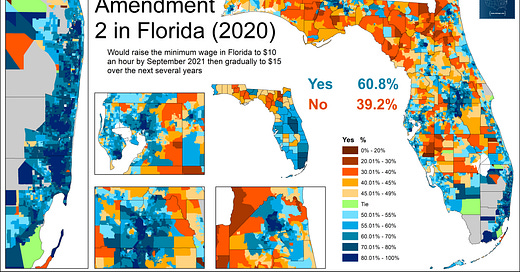






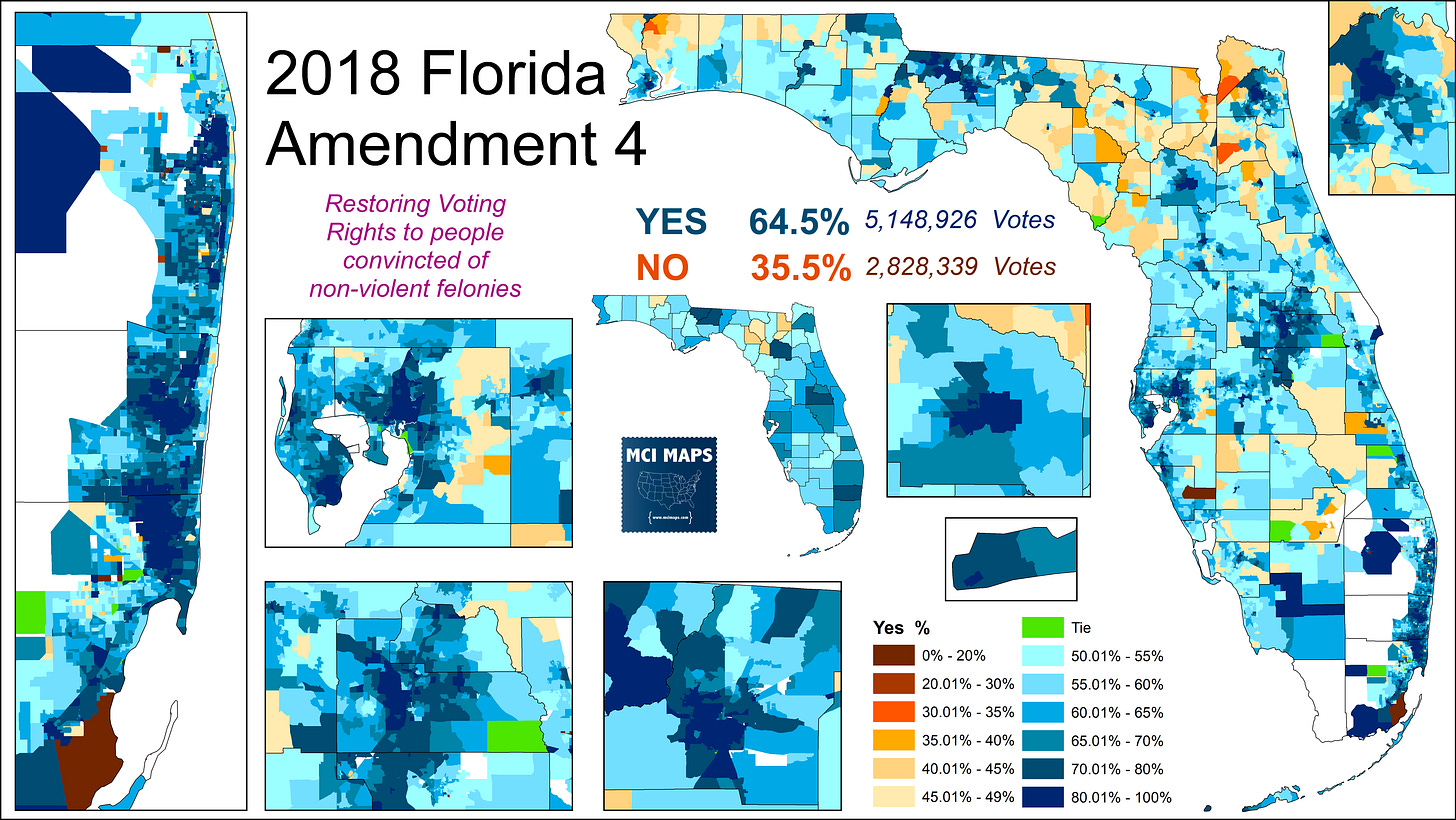

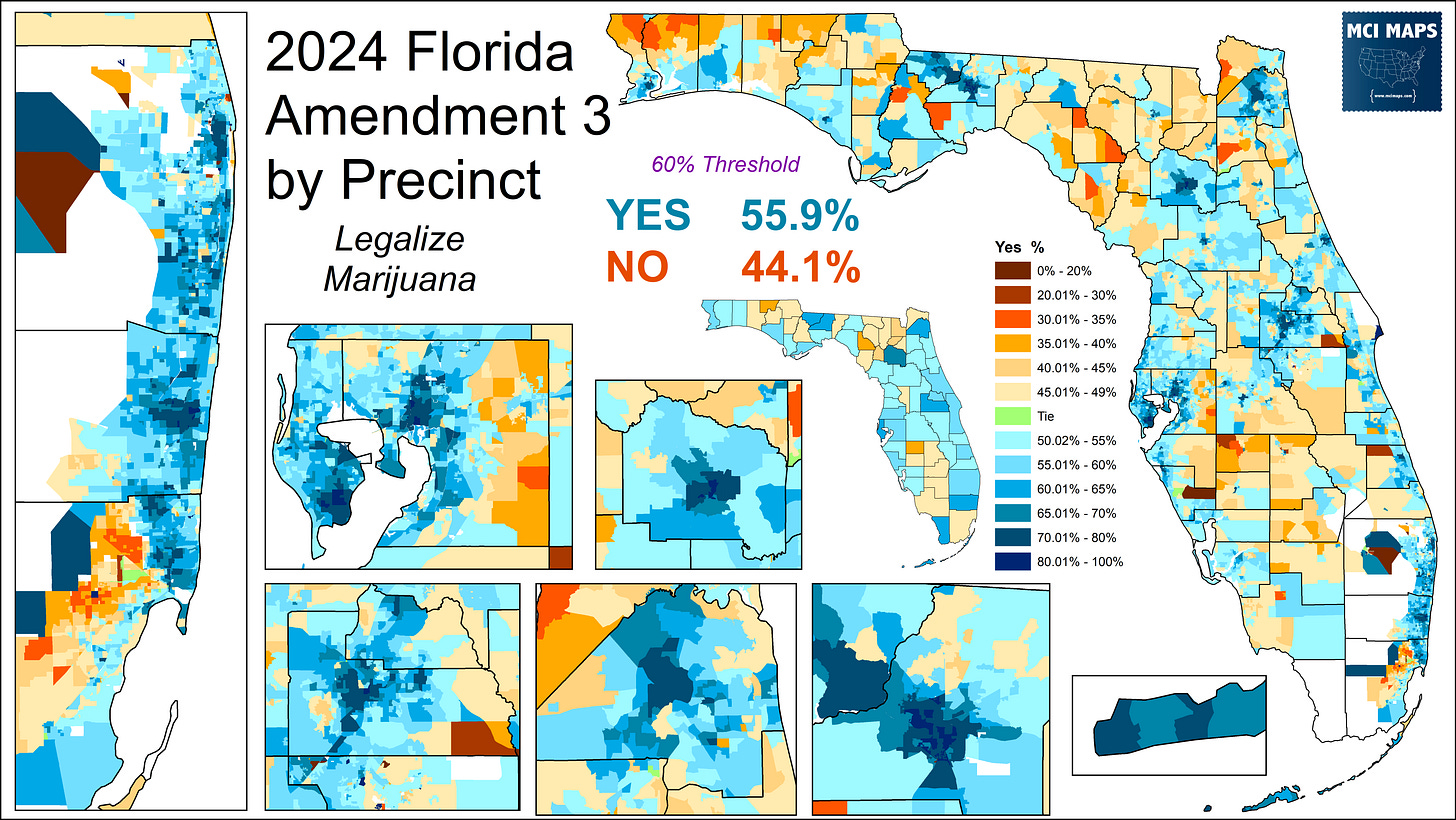
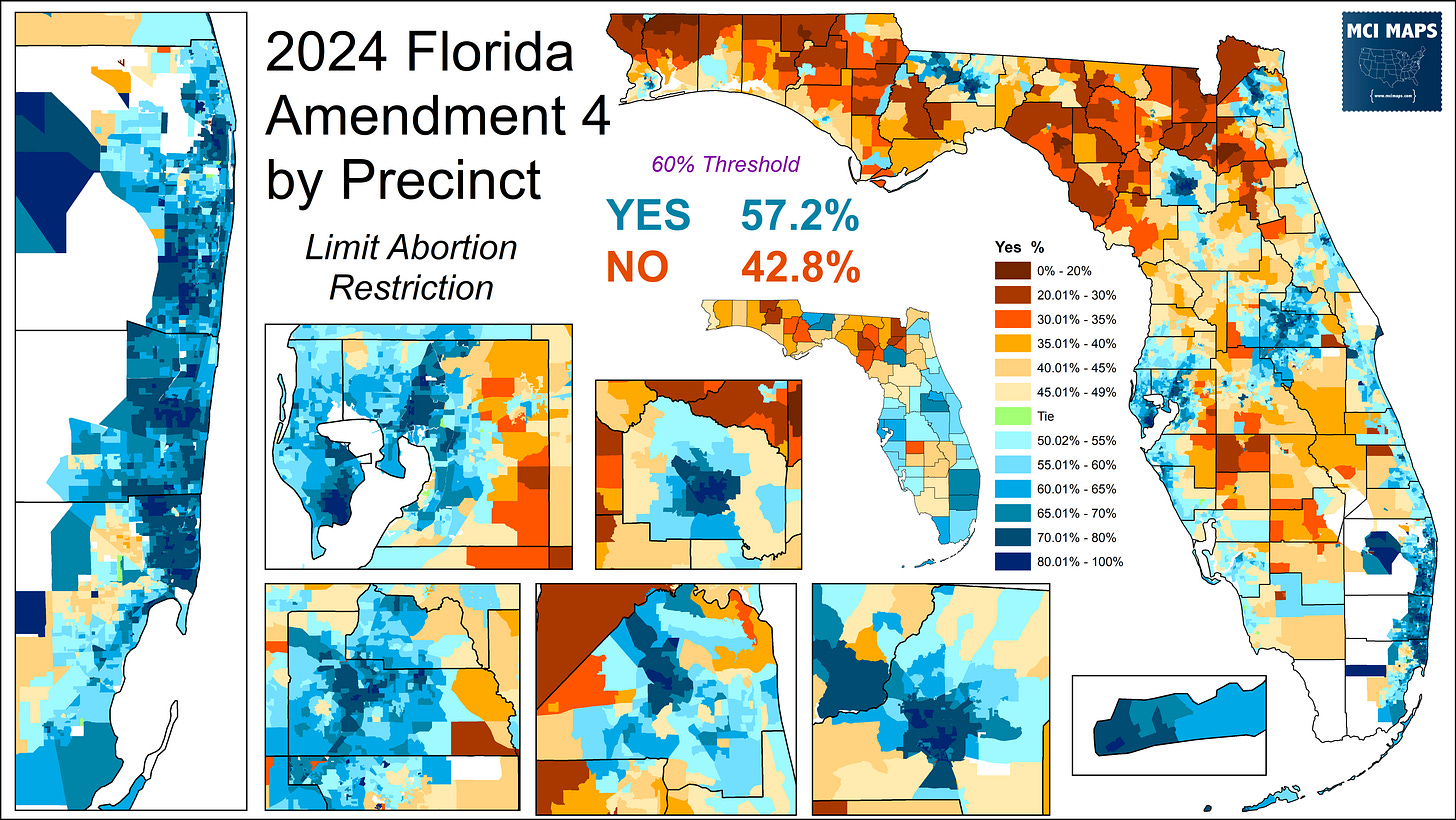
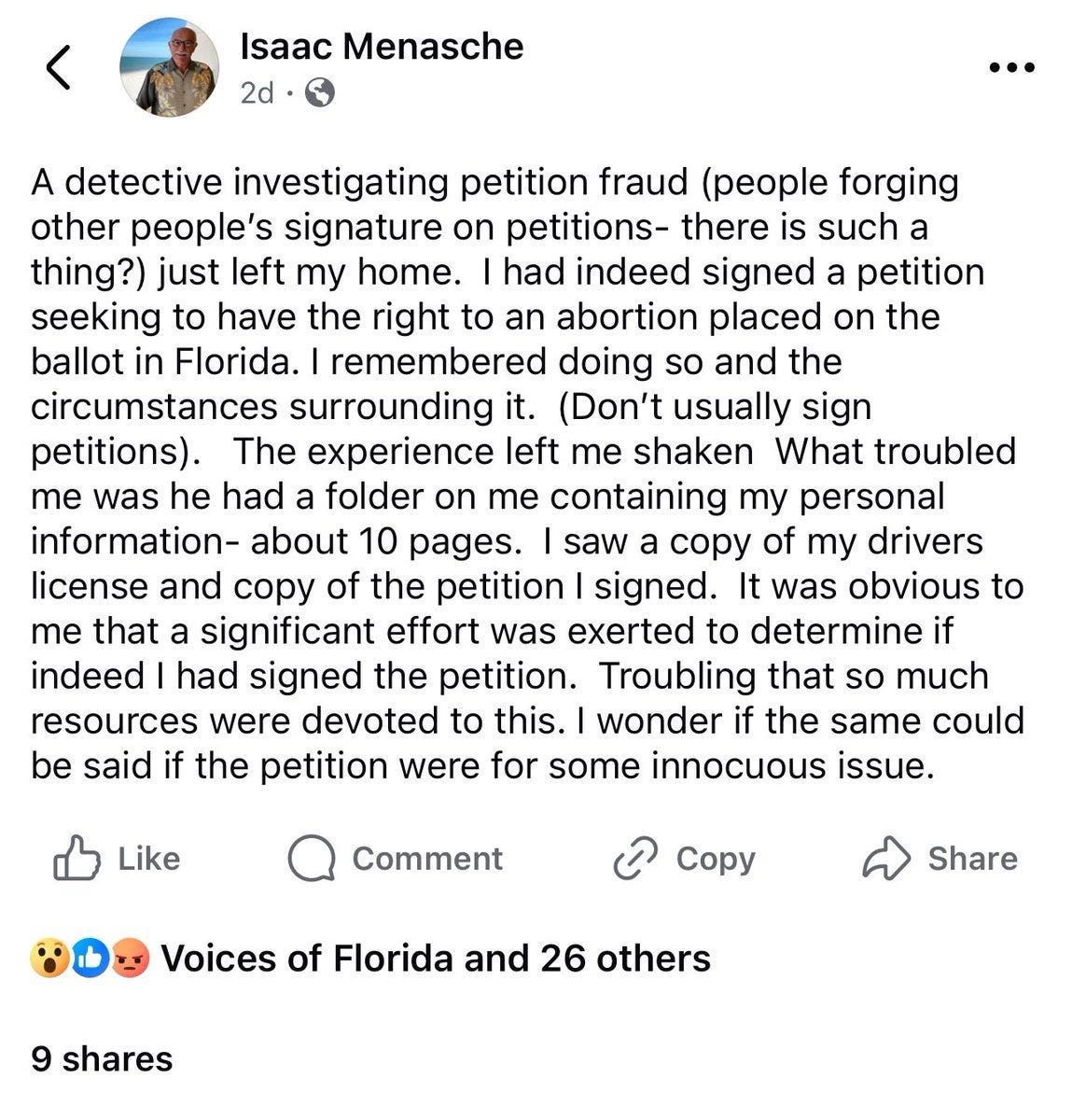
Excellent summary! Thank you for your efforts to bring this important issue to people's attention. It needs far more attention. Especially the lie espoused by Republicans that there is massive fraud in the petition drives and voting in general. We need everyone to vote, but Republicans try time and again to limit voting. They would reinstitute Jim Crow in a heartbeat if they could.